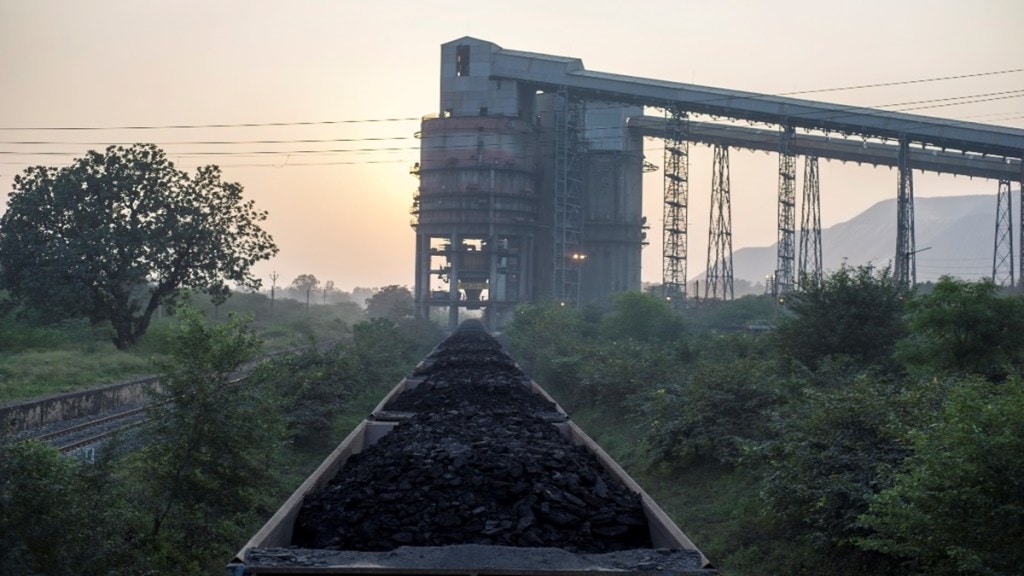With the aim of bolstering India’s energy security and advancing the vision of a self-reliant nation as outlined in the concept of Atmanirbhar Bharat, the Ministry of Coal is actively engaged in the formulation of the National Coal Logistic Plan. This comprehensive plan encompasses the concept of First Mile Connectivity (FMC), a transformative approach centered around railway sidings near coal mines. As part of this endeavor, the Ministry of Coal has crafted strategies to enhance mechanized coal transportation and loading systems under the framework of FMC projects.
In the continual pursuit of sustainable growth and ecological preservation, the concept of First Mile Connectivity has emerged as a pivotal catalyst for change. This innovative paradigm is revolutionizing the transportation of coal, bringing about enduring and favorable changes for the environment.
The many advantages of FMC
First Mile Connectivity effectively eradicates the necessity for road-based coal transportation within mining zones, opting instead for conveyors or roads leading to the nearest railway siding. By employing conveyor belts or roads for transporting coal to the closest railway siding, FMC reduces the volume of trucks on the roads, thereby mitigating detrimental environmental effects like air pollution, traffic congestion, and road degradation. This, in turn, contributes to the creation of a cleaner and healthier environment.
67 FMC projects with 885 MT capacity are under process
A comprehensive tally of 67 First Mile Connectivity (FMC) Projects—comprising 59 by Coal India Limited (CIL), 5 by Singareni Collieries Company Limited (SCCL), and 3 by NLC India Limited (NLCIL)—with a combined capacity of 885 million metric tons, are being progressively pursued in three phases to achieve a mechanized coal handling capacity of approximately 1 billion metric tons. Aligned with the objectives of the Prime Minister’s Gatishakti initiative, the Ministry of Coal has undertaken railway projects amounting to Rs. 26,000 crore to establish multi-modal connectivity.
FMC’s critical role: Explained
Furthermore, FMC plays a pivotal role in conserving natural resources and fostering greenery. By embracing the principles of First Mile Connectivity, coal mining operations attain enhanced economic viability over the long term. The adoption of technology-driven processes not only amplifies productivity but also curtails operational expenses, thus contributing to the overall profitability of the coal sector. This shift towards sustainable transportation is a significant stride towards climate change mitigation and the enhancement of air quality.
A strong partnership
The Ministry of Coal is actively collaborating with the Ministry of Railways to augment coal evacuation and distribution capabilities. Currently, 13 railway lines are under construction in partnership with the Ministry of Railways to expand coal distribution capacities, each at varying stages of development.
First Mile Connectivity in coal transportation emerges as a beacon of hope in constructing environmentally conscious societies that tackle transportation hurdles while elevating connectivity within the nation.
Benefits of First Mile Connectivity
The influence of First Mile Connectivity on the environment is manifold and far-reaching:
Reduced Carbon Footprint: The optimization of transportation systems and the reduction of dependence on fossil fuel-driven vehicles will notably decrease greenhouse gas emissions, thereby combatting climate change and alleviating its adverse impacts.
Preservation of Natural Ecosystems: The establishment of eco-friendly transportation networks promotes the safeguarding of natural habitats and biodiversity, ensuring the conservation of delicate ecosystems for future generations.
Enhanced Public Health: The reduction of air pollution and alleviation of traffic congestion positively affect public health by diminishing the prevalence of respiratory ailments and stress-related conditions.

